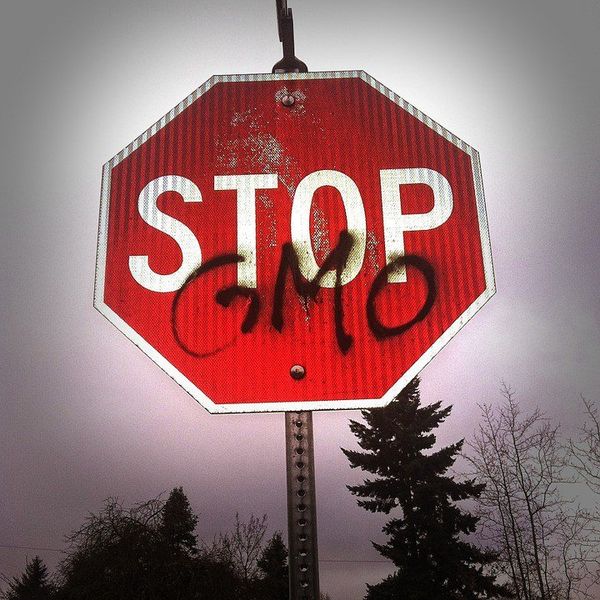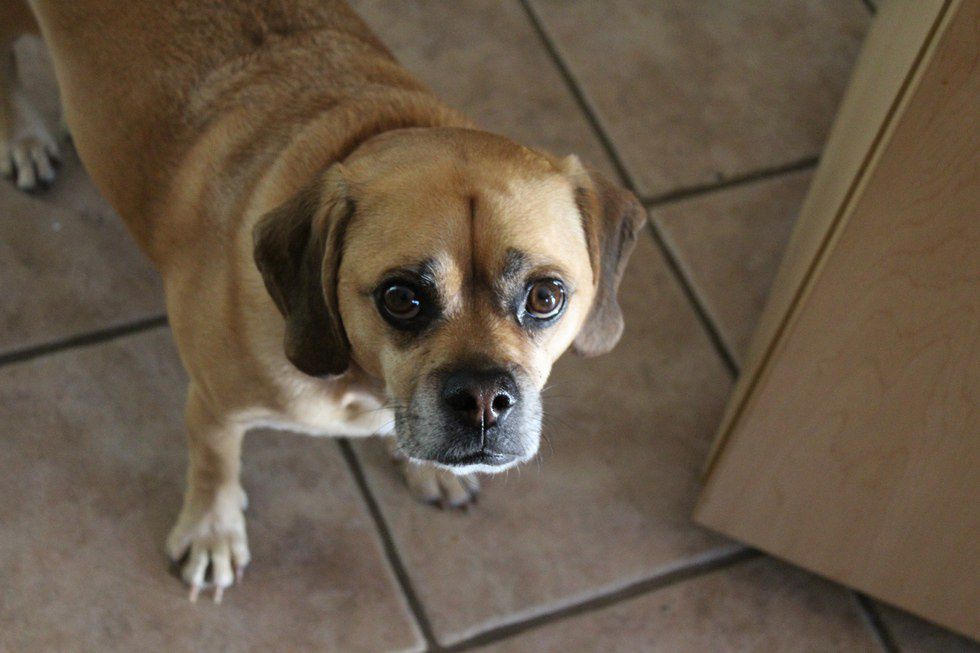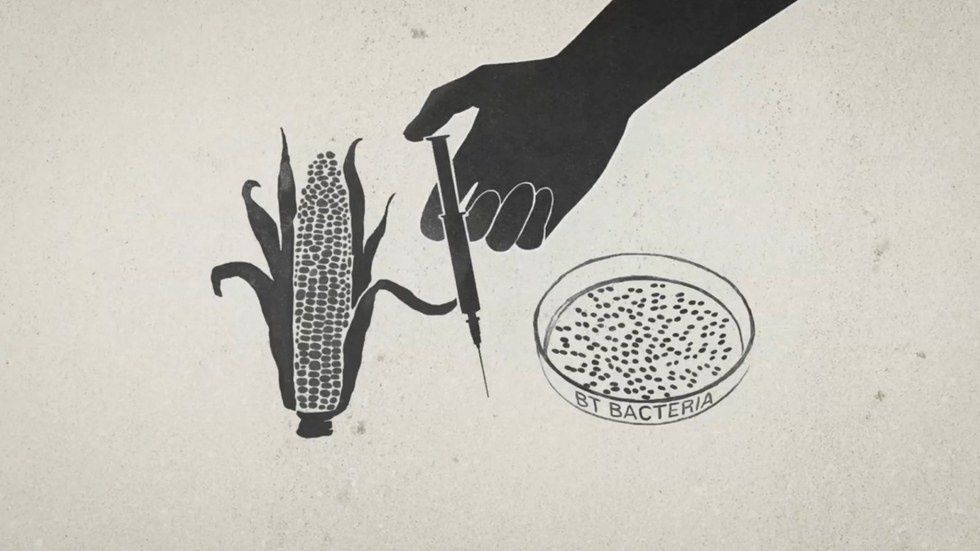In light of the recent signing of the GMO-Labeling bill by President Obama, I thought we all could use a little explanation of what it all means. This is part one of a three-part series, so let's start with the basics.
What are GMOs?
GMO stands for Genetically Modified Organism. This means that DNA from one species was removed and forced into the DNA of another species. This is most commonly done with plants, but in 2015 the FDA approved genetically-modified salmon, and research and development in this category are constantly evolving.
I've heard people argue, "Oh they've been genetically modifying food forever!" These people are confusing genetic modification with cross-pollination/breeding. These practices have similar goals, but they are not the same. They differ in that cross-pollination/breeding is a natural process, meaning it could, and often does occur in nature without the aid of humans. Genetic-modification is entirely man-powered, and would never spontaneously occur in the wild.
Examples:
Cross-pollination: If you've heard of "cotton candy grapes" aka grapes that taste like cotton candy (for real, go get some!), they are an example of cross-pollination. They were created with human assistance but they are simply the result of pollen from one grape species meeting a new grape species, which could have happened in nature if the two species were growing near each other and a bee flew from one, to the other. There are many examples of this, it's been happening naturally forever, and with human assistance for decades. A simpler, more adorable example: Puggles, the result of a pug and a beagle mating.
Genetic modification: Bt-Corn, which is modified to kill a particular pest, is produced by injecting the DNA of a bacteria found in soil into the DNA of corn. This has to happen in a lab, and there's no way this would happen in nature.
Why do they exist?
GMO crops were initially developed in an effort to increase the amount of food that can be produced. So far, this has not been successful.
Are they safe?
This is by far the most controversial question related to GMOs. A recent study found that consumption of GMO-foods does not pose any increased risk to humans as compared to conventionally grown (non-organic) foods.
That being said, my issue is with the amount of chemicals that are used on GMOs and the impact they have on the environment, not with the safety and science of genetic modification itself.
Types of GMO
Most genetically-modified plants are created with one of two different traits; they are either herbicide-resistant aka "Roundup ready", or have a built-in toxin (Bt). Herbicide-resistant crops allow farms to spray weed-killer directly onto them, so that weeds will die but the crop won't. Built-in toxin crops grow their own internal pesticide, which kills certain insects that feed on them.
So, what does that mean?
"Roundup ready" is easily my biggest concern when it comes to GMOs. Roundup is the most commonly used herbicide in the world, and it's primary ingredient, glyphosate, was recently deemed just as likely to cause cancer as cigarette smoking by the World Health Organization (WHO). So, "Roundup ready" crops are made to withstand being doused in Roundup, which means that the crops and the soil they're grown in are full of cancer causing herbicide.
On top of the fact that consumption of this chemical can probably cause cancer, the excessive use of herbicides has also caused the growth of "super weeds". These are weeds that have developed herbicide-resistance naturally (nature will always outsmart us), and inspire chemical companies and conventional farmers to either use more herbicide, or develop stronger herbicides.
I personally don't have any specific concerns with Bt-crops, in theory they would require less pesticides, which reduces chemical exposure. In general though it just doesn't sound like a good idea for my food to be capable of killing the things that try to eat it, maybe that's just me.
Enlightened?
If you liked this article stay tuned for part two next week! In the meantime, I highly recommend checking out the documentary GMO OMG. It follows the story of a curious Dad trying to find out everything he can about GMOs, and how they affect us and the environment. Pretty sure you can find it on Netflix.
Coming up next:
In the next couple weeks we'll discuss Monsanto, the recently passed GMO-labeling bill aka the "DARK" act, and how to avoid GMOs (if you want to).























